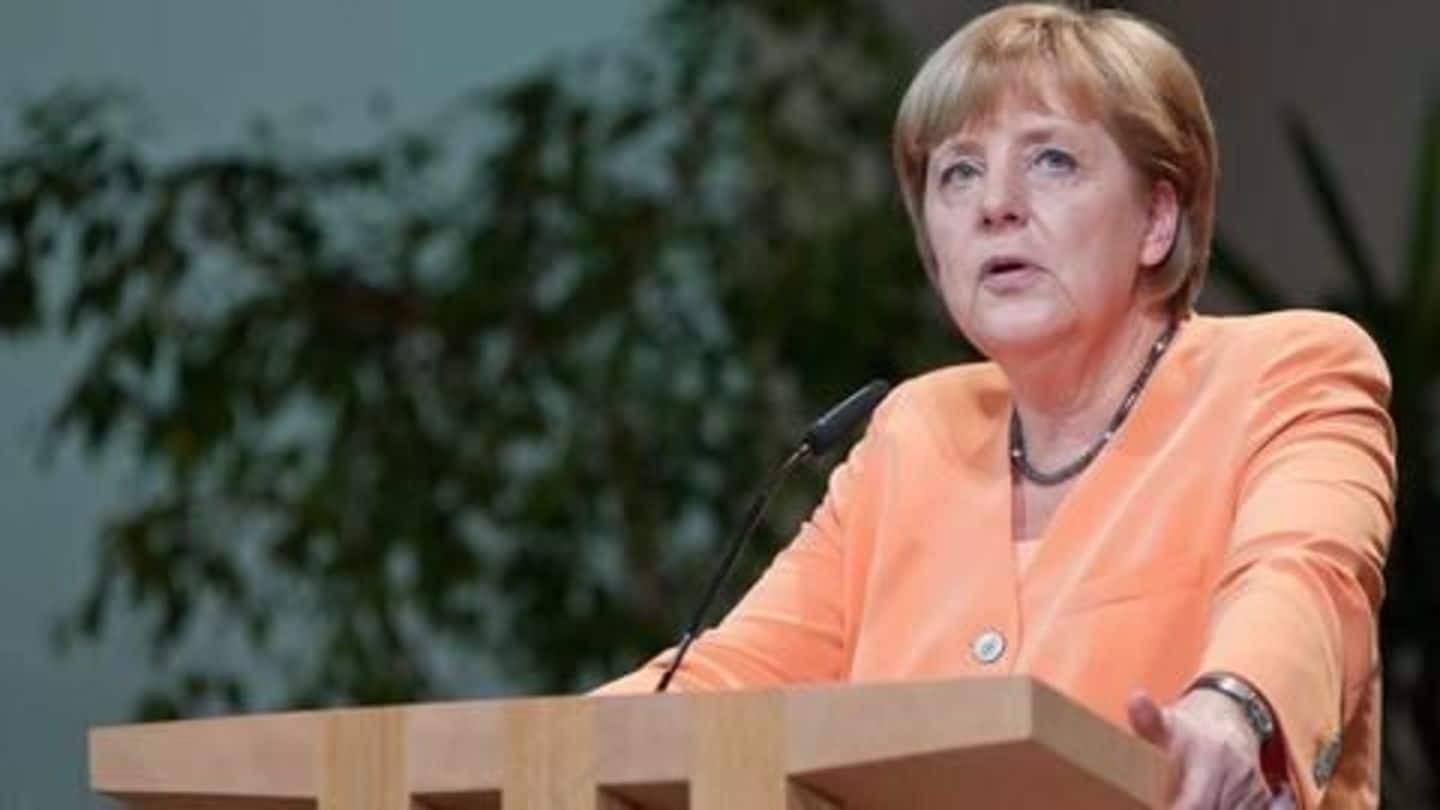
Islamist terror is Germany's greatest threat: Merkel
What's the story
In her new year's message, German Chancellor Angela Merkel stressed upon the fact that Islamist terror remained the greatest threat to Germany; calling the Berlin truck attack "sickening", she said 2016 had been a year of "severe tests". She stated that despite the attacks Germany remained "free, considerate and open." Her refugee policy has been criticized, leading to heavy political losses for her party.
The refugee policy
Angela Merkel's refugee policy
On September 5, 2015 German Chancellor Angela Merkel allowed refugees who had been detained in Hungary to come to Germany; she announced an open-door program for refugees, hoping the rest of the EU would follow. However, what followed was a severe criticism of her policy (especially after the Cologne incident) and a political loss of face for the CDU/CSU coalition.
Historical
The Cologne incident
On 31 December 2015, 100s of women reported being sexually abused when crowds gathered to celebrate the new year at the Cologne station. According to witnesses over 1,000 drunk and aggressive "North-African or Arab looking" men were involved in the assault.
Political fall-out
Repercussions of Merkel's refugee policy
The sudden influx of refugees into Germany led to a rise of German nationalism, changing the country's political landscape. Any instances of minorities indulging in criminal acts were immediately linked to the failure of Merkel's policy, fomenting political dissent. The right-wing-nationalist Alternative for Germany party rose to prominence and is likely to be voted into the German Parliament as a new party in 2017.
Information
Christian Democratic Union have a narrow lead
Merkel's CDU has a mere 10 point lead in the current parliamentary elections, but if this lead were to slip, it would be solely because of the rising popularity of the right-wing rhetoric in Germany fueled by the Alternative for Germany (AfD) party.
Key incidents
Incidents of terror on the rise
July 2016 witnessed a spate of violence; on 18 July, an Afghan refugee attacked people on a train with an axe, wounding 5 before being shot by police. On 22 July, a German-Iranian teenager shot 9 people and killed himself in Munich; on 24 July, a refugee whose asylum request was rejected blew himself up outside a bar in Ansbach, wounding 15.
Information
2 attacks on 24 July
Earlier in the day, before the Ansbach bombing, a 21 year old Afghan refugee attacked several people, killing one and wounding 5 in Munich, before fleeing. He was eventually arrested.
The Berlin attack
Berlin suspect was Tunisian refugee
Twelve people were killed when Tunisian asylum seeker, Anis Amri drove a truck at crowd at a Berlin Christmas market two weeks ago; Chancellor Merkel said it was "sickening" when acts of terror were carried out by people who had sought protection. The news provided political ammunition to far-right parties in Germany, making Merkel's refugee policy more indefensible for the CDU.
Quote
Merkel does not back down on Refugee policy
However, in her Christmas address, Merkel said the current situation in Aleppo proved how "important and right" it was for Germany to take in those fleeing the conflict. She said being open was ingrained "in our (German) democracy, rule of law and values."